- Home
- / CL Answers
- / Best Supplements to Prevent Age-Related Muscle Loss
www.consumerlab.com/answers/best-protein-to-gain-and-maintain-muscle/best-protein-for-muscle/
Save to favorites
This feature is restricted to active members.
Join now to save favorites and get all member benefits, including over 1,400 reviews.
Join NowAlready a member? Sign in here.

Our Members Asked:
Best Supplements to Prevent Age-Related Muscle Loss
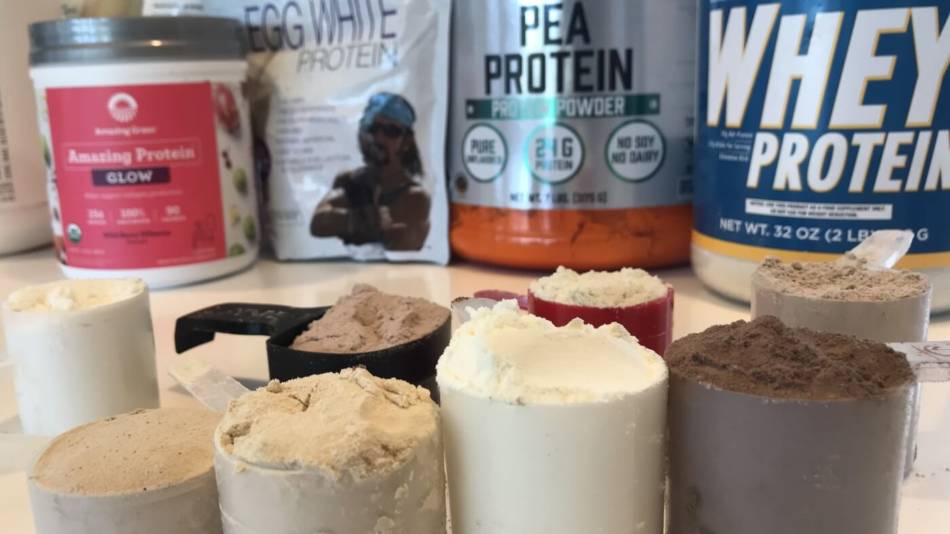
Answer:
After age 30, adults may lose between 3% to 8% muscle mass each decade, and the rate of muscle loss may accelerate after age 60 (Volpi, Curr Opin Clin Nutr Metab Care 2018). Age-related muscle loss (the progressive loss of skeletal muscle mass and strength) may increase the risk of falls and has been associated with increased mortality (Clynes, Calcif Tissue Int 2015).
Some supplements may help to slow the loss of muscle as we age, although some have shown benefit only if combined with resistance exercise, and not all supplements promoted for slowing muscle loss seem to help.
Sign in as a member for details about supplements that may help and some that might not. Supplements discussed include branched-chain amino acids, creatine, fish oil, hydroxymethylbutyrate, protein powders and shakes, urolithin A, ursolic acid, and vitamin D.
In addition the results of its expert testing, ConsumerLab uses only high-quality, evidence based, information sources. These sources include peer-reviewed studies and information from agencies such as the FDA and USDA, and the National Academy of Medicine. On evolving topics, studies from pre-print journals may be sourced. All of our content is reviewed by medical doctors and doctoral-level experts in pharmacology, toxicology, and chemistry. We continually update and medically review our information to keep our content trustworthy, accurate, and reliable. The following sources are referenced in this article:
- Aguiar, Res Sports Med 2022
- Apaydin, BMC Endocr Disor 2018
- Bear, Am J Clin Nutr 2019
- Bhasin, JAMA Int Med 2018
- Bislev, Calcif Tissue Int 2018
- Bislev, Nutrients 2020
- Cangussu, Osteoporos Int 2015
- Cione, Clin Nutr ESPEN 2021
- Clynes, Calcif Tissue Int 2015
- Courel-Ibáñez, Nutrients 2019
- Da Boit, Am J Clin Nutr 2016
- English, Am J Clin Nutr 2016
- Katashima, Obes Rev 2017
- Lobo, Biomed Pharmacother 2022
- Lobo, Clin Nutr 2021
- Mori, Geriatr Gerontol Int 2018
- Oktaviana, J Nutr Health Aging 2019
- Volpi, Curr Opin Clin Nutr Metab Care 2018
Join today to unlock all member benefits including full access to all CL Answers and over 1,400 reviews.
Join NowAlready a member? Sign In Here.
Join now at www.consumerlab.com/join/
Agree to Comment Terms
Please abide by the following:
- If you make a statement of fact, such as whether a type of treatment does or does not work, state your basis -- such as personal experience or a published study.
- If you make a positive or negative comment about a product, note whether or not you have a financial interest in the product or in a competing product.
- Please be respectful in your tone.
- Please do not submit any type of HTML markup or scripting as it will not be accepted, nor will posts that exceed 2,500 characters.
For your privacy, only your first name (from your account) followed by a random number will appear with your comment. Your last name and email address will not be displayed.
Your comment has been submitted
We will review your comment before it is posted.

Latest Research Updates (Clinical Updates)
Ursolic Acid for Slowing Muscle Loss?
February 10, 2025
Protein for Older People?
February 03, 2025
Does supplementing with protein lead to greater muscular benefits in older people involved in resistance training? See what a recent review of studies concluded in the Building and maintaining muscle mass section of our Protein Supplements Review, which includes our Top Picks among protein powders, shakes, and drinks.
Also see: Best Supplements to Prevent Age-Related Muscle Loss
Shatavari for Strength?
January 23, 2025
Did taking shatavari (wild asparagus) help increase muscle strength in women doing resistance training in a recent study? Find out in the Shatavari section of our Menopause Supplements Review.
Also see our article: Best Supplements to Prevent Age-Related Muscle Loss
HMB for Muscle Loss With Age?
September 03, 2024
Also see our Top Picks among muscle & workout supplements.
Supplements for Muscle Loss?
August 26, 2024
Related CL Answers (10)

Related Content
Join over 95,000 Members
Find the best products with instant access to our latest tests & reviews of over 1,400 health products.
Save money by finding high-quality products at lower cost.
Stay safe with the latest clinical findings, warnings, and expert answers.
Suggest products to test.
Stay informed with our e-newsletter.
Ratings of ConsumerLab

The "Updated" date indicates when new information was most recently added to this article. In the full article, the newest information is highlighted in yellow.
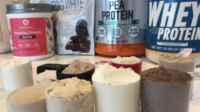



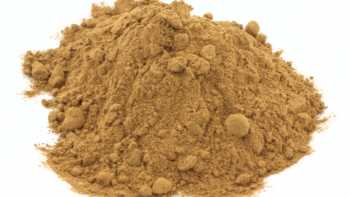

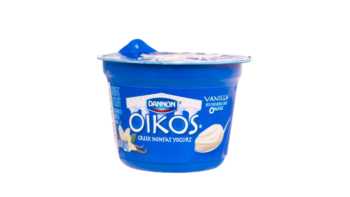


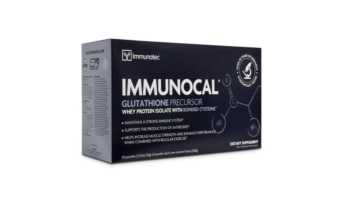
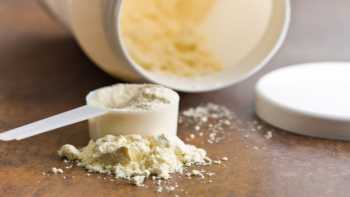





Submit your comment
This feature is restricted to active members.
Join now to add comments and get all member benefits, including over 1,400 reviews.
Join NowAlready a member? Sign in here.